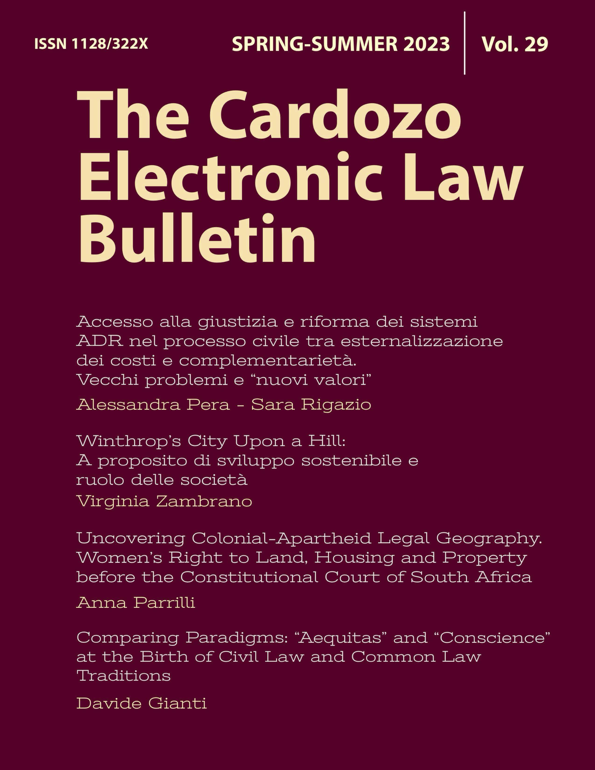COMPARING PARADIGMS: “AEQUITAS” AND “CONSCIENCE” AT THE BIRTH OF CIVIL LAW AND COMMON LAW TRADITIONS
DOI:
https://doi.org/10.13135/1128-322X/8447Parole chiave:
comparative law, equity, conscience, civil law, common law, legal theory, theologyAbstract
The birth of continental and common law traditions was in!uenced by Christian theology and canon law in various ways and through unexpected channels. This circumstance is shared by both and should not be overlooked because of the distinctions between them. On the one hand, the propensity to equate canon law to Roman law that was rediscovered in the early Middle Ages is inaccurate, while the exaltation of the originality of the “common law legal genius” underestimates the primacy of belonging to a common matrix of Christian thinking. In both cases, canon law’s signi"cance is reduced to obscurity; however, above all, an understanding of the role played by theology in creating new paradigms is prevented. This article aims to show how theology and classical canon law, as they were understood between the eleventh and fourteenth centuries, represented the common background used to create two new legal-theological paradigms on the continent and in England: aequitas and conscience.






